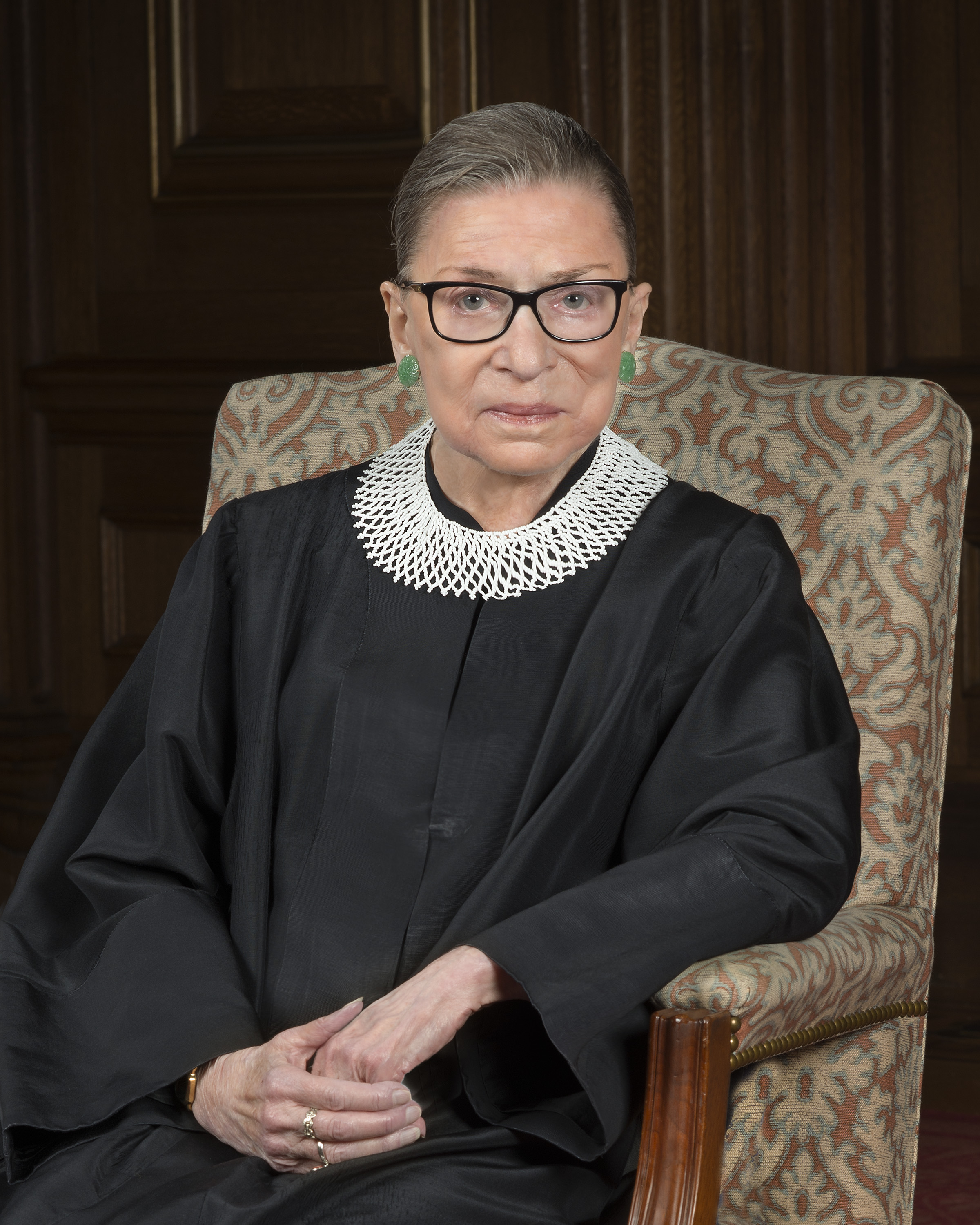Remembering Ruth: The long-lasting legacy and immediate controversy of Supreme Court Justice Ruth Bader Ginsburg
September 27, 2020 - Karessa Weir, Liz Schondelmayer
When news of the death of Supreme Court Justice Ruth Bader Ginsburg spread Friday night, the political science world was rocked. Twitter and Facebook were filled with tributes by those who considered her an inspiration, as well as predictions by those who feared the long-term impact of her death just weeks before the 2020 presidential election.
At 87 years old, “Notorious RBG” would have made news even in a non-election year because of the iconic status she has gained way before her confirmation to the country’s highest court in 1993. She fought for women’s rights in the 1970s, and following her first judicial appointment in 1980, crusaded for gender equality in education, employment and many other areas.
 “Justice Ginsburg was an important figure bound for the history books even before she was confirmed to become a Supreme Court justice. That she took on a celebrity role in the last decade or so of her career of public service only underscores that contribution and has introduced her to an audience well beyond ‘typical’ court-watchers,” said MSU Political Science Professor Ryan Black.
“Justice Ginsburg was an important figure bound for the history books even before she was confirmed to become a Supreme Court justice. That she took on a celebrity role in the last decade or so of her career of public service only underscores that contribution and has introduced her to an audience well beyond ‘typical’ court-watchers,” said MSU Political Science Professor Ryan Black.
For Dr. Elizabeth Lane, recent PhD recipient from MSU who now teaches political science at Louisiana State University, Justice Ginsburg was an inspiration for simply showing that women could succeed in a male- dominated field such as the law.
“I think she demonstrated throughout her life that women can do anything that men can do. I also think that she showed women that being a strong woman and being a feminist doesn’t have to look a certain way. She was a mother and a wife and still outperformed all of her law school classmates, and then went onto achieve the highest ranks in the legal profession. She was proud of the fact that she was a woman. She didn’t apologize for it or try to hide it or downplay her gender,” Dr. Lane said, adding that it was especially relevant to her that she and Justice Ginsburg were both 5 feet 1 inches tall.
“Being a woman, and on top of that being small and looking young often makes me feel like people do not take me seriously. I was inspired seeing someone like me that people listened to. Her words impact people. I was also inspired by the fact that she never let anyone dampen her flame. When she disagreed with the conclusion the majority of the Court reached in a case, she always still shared her perspective because it was important to hear. She exuded confidence in herself and her abilities that is inspiring for anyone, particularly those of us working in a male dominated field.”
But sadly overshadowing her remarkable history is the immediate controversy of her death mere weeks before President Donald Trump is up for re-election against former Vice President Joe Biden.
“I think that the main issue with naming RBG's replacement will be the debate over the ‘rules’ of nominating a SCOTUS justice within close proximity to an election. Democrats and Republicans were on opposite sides of the issue in 2016 and now they have traded talking points,” said MSU Political Science Assistant Professor Ian Ostrander. “The fact is that the Republicans have shamelessly reversed their positions in 4 years because it was to their advantage to do so. What is going on is merely raw power politics. We call this ‘situational constitutionalism’ where a politician's understanding of the rules/norms depends on whether and how they are advantaged by interpreting the rules.”
However, Dr. Ostrander points out there are no actual rules blocking the current president and Senate majority from nominating and confirming a justice. And it’s not clear if anyone will actually pay an electoral price for reversing their position of waiting in 2016, he said.
“Regular voters just don't pay any attention to procedure and when they do, they usually interpret fairness through a partisan lens. So I expect both parties to fire up their base with this fight,” Dr. Ostrander said.
Dr. Black said the move to quickly appoint Justice Ginsburg’s replacement isn’t unprecedented. Since 1975, confirmed nominees have taken just shy of 10 weeks to go from nomination to confirmation. However, Justice Ginsburg herself was confirmed just 42 days after her nomination and former Justice Sandra Day O’Connor was confirmed in 33 days.
“More recent nominees have taken longer, but those circumstances were different because of the (Brett) Kavanaugh controversy and (Neil) Gorsuch was nominated before the filibuster had been eliminated for Supreme Court nominees,” Dr. Black said.
Regardless Drs. Black and Ostrander agree that in both life and now in death, Justice Ginsburg is bound to have a multi-generational impact on the Supreme Court, Senatorial procedures and many areas of political science.

